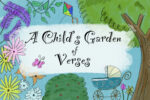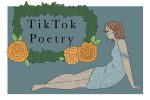Why Students Should Read & Write Poetry (At Least Once)
Forget all the stuffy couplets you studied in high school and give poetry another chance.
By Rebecca Friou, University of New Orleans
As undergrads, many students are back at the bottom of the food chain, striving to find their tribe.
Departing from high school can result in displacement and confusion. Once settled in your dorm, you may ask yourself, “Who am I? What am I doing here?” It is not uncommon to question your motives and goals at this point in your life, especially in the face of change. Because of this, students often seek a coping mechanism or an artistic outlet to channel their emotions into, and many thrive in a specific niche. It is usually here that they determine their futures and finally grasp how and what they’re meant to do. So how does poetry come into play?
Poetry comes from the ancient Greek word, ποιεω (poieo), meaning “I create.” After being translated from Greek to English, three other words stemmed from this definition: poet (the creator), poesy (the creation) and poem (the created). With the etymology in mind, it becomes evident that poetry is different than straightforward writing. It is often noted for its free-spirited manner, and differentiated from prose by its lack of methodical structure. It charms with extensive imagery and alliteration that helps readers recognize the hidden meaning between the lines.
Though there are distinct styles such as haikus, sonnets and free verse (my favorite), poetry is by no means a fixed pattern of words. The inconstant representation and variety of poems is what makes them important. Attempting to write a novel takes extensive energy, intellect and dedication, whereas summing up your emotions in seven words can relate the same meaning in a quarter of the time. Of course, I am not undermining the talented works of poets, merely proving that the work and meaning behind the process varies for everyone. Hard work and wisdom fuel any creativity, and poetry is no exception.
Discovering your emotions and engaging in a creative outlet is vital to success and mental health. Whether you are a graffiti artist, cellist or fashion blogger, each of these roles facilitates artistic growth and provides meaning to life.
Poetry does the same. If you are searching for some sort of way to explain yourself, attempt writing. It does more for you than you will realize. As it encourages your own self-discovery, sharing your work can have a positive effect on someone as well. I know that in my own experience, I have come across written words that spoke to me as if the author were inside my mind. Experiencing this phenomenon causes you to realize that as alone as you may feel, none of us truly are. What we may be thinking could be what someone else is writing.
When I asked several of my peers to explain the importance behind recognizing and participating in writing poesy, I received several key responses. Someone pointed out that many songs are derived from poetry and other similar written works, proving that many of us are already reading and listening to poetry each and everyday without even knowing it. Others spoke of it enhancing their vocabulary and sharpening their personal writing style. So many people often dismiss poetry as superficial and excessively romantic, but these critics are often students that were subjected to antiquated, irrelevant poetry at some point in school.
Though the public education system is obligated to teach certain criteria, I blame them for providing misconceptions of poetry. The art form is not just about love or deep emotion; poets write about current affairs, feminism, their obsession with coffee and so much more. It can be humorous, influential, informative and emotional— neither “boring” nor “lovey dovey.” On top of that, there is never a length requirement for free verse style.
You can write three words and call yourself a poet. Sounds easy right?
To be honest though, poetry is not for everyone. Those who find satisfaction in precise outcomes hardly appreciate the fluid, illusive meanings throughout different poetic styles. However, I find that both archaic and contemporary poesy can appeal to all types of personalities. Whether you are a fan of the classic Shakespeare you read in high school or a lover of dramatic “Tumblr poems” written by teenage girls who confide their unrequited love to the internet, most likely something will spark your interest.
Just as young people revere rappers for their insane verses, guitarists for their virtuoso solos and celebrities with the balls to dress outrageously, we should revere writers for their ability to put into words the incredibly complex emotions of the human race.
Take some time to think of your favorite author. When you aren’t sure how you’re feeling or what to say, there is always a way to find someone else’s own interpretation of it. These writers, especially poets, give readers the assurance and emotional guidance that they need.
Therefore, I urge you to pick up a pen or open your laptop and write. Write whatever comes to mind, whether it is a phrase about how much you love Taco Bell’s crunch wrap supreme or three pages of angry words about your Biology professor who’s failing you. Recall that river you grew up swimming in or the time you laughed so hard you were certain you were going to die. You never know when your own poem will humor someone else or be just what they needed to read to get them through their all-nighter.
So with that said, I’ll leave you with a poem of my own.
Roses are red,
Daffodils are yellow,
Brock Turner is scum,
Let’s re-sentence this fellow


















